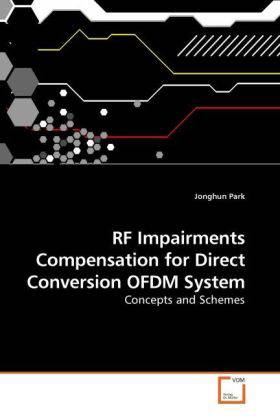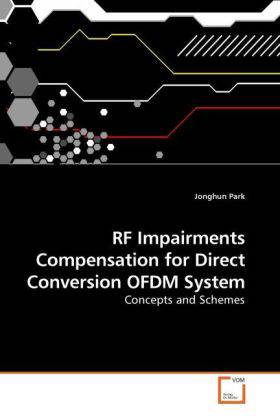
- Afhalen na 1 uur in een winkel met voorraad
- Gratis thuislevering in België vanaf € 30
- Ruim aanbod met 7 miljoen producten
- Afhalen na 1 uur in een winkel met voorraad
- Gratis thuislevering in België vanaf € 30
- Ruim aanbod met 7 miljoen producten
Zoeken
RF Impairments Compensation for Direct Conversion OFDM System
Concepts and Schemes
Jonghun Park
Paperback | Engels
€ 66,45
+ 132 punten
Omschrijving
Orthogonal frequency division multiplexing (OFDM) has been widely recommended to the most promising baseband modulation and multiplexing technology for 3G and 4G communication systems because of its spectral efficiency and robustness against frequency selective fading channel. Furthermore, direct conversion based RF transceiver has had more advantages in aspects of power consumption, area and complexity than conventional heterodyne transceiver. In order to maintain all merits in both direct conversion structure and OFDM, many algorithms have been studied to compensate inevitable RF impairments such as I/Q imbalance and carrier frequency offset (CFO) in digital domain. In this respect, this book provides the principle of the OFDM system and direct conversion receiver with RF impairments such as I/Q imbalance and CFO, previous works for impairments compensation, and new novel schemes. Numerical performance comparisons on both mean square error of estimation and bit error rate of transmission show the superiority of proposed schemes compared with previous methods.
Specificaties
Betrokkenen
- Auteur(s):
- Uitgeverij:
Inhoud
- Aantal bladzijden:
- 76
- Taal:
- Engels
Eigenschappen
- Productcode (EAN):
- 9783639230987
- Verschijningsdatum:
- 18/02/2010
- Uitvoering:
- Paperback
- Afmetingen:
- 152 mm x 229 mm
- Gewicht:
- 122 g

Alleen bij Standaard Boekhandel
+ 132 punten op je klantenkaart van Standaard Boekhandel
Beoordelingen
We publiceren alleen reviews die voldoen aan de voorwaarden voor reviews. Bekijk onze voorwaarden voor reviews.








